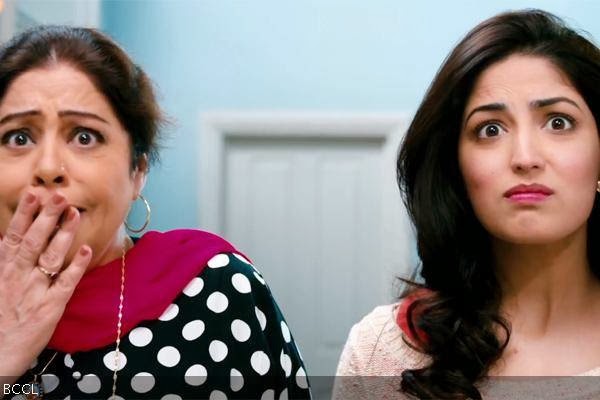
by Duriba Khan
It’s hard. It really is hard to accept the fact that your mom was right.
One of the hardest things in life for me is to admit that I’m wrong. So a couple of nights ago, I laid in bed and watched the seven mahogany panels of the ceiling fan repeatedly rotate clockwise, in a circular motion. Why, turn, am I, turn, always, turn, wrong? I thought, over and over again.
(Tangent alert!) Yesterday, around 2:30 am I was doing a pre-cal problem, when I noticed a beady eyed fly on my notebook. Gross! I mumbled to myself. Within the thirty seconds I spent chasing it around with a dictionary and allowing a colorful stream of Hindi profanities light my tongue, I convinced myself that it had peed on my notebook paper. Disgusted and afraid, I took the case to an educated official who would definitely know the answer to my question: Google. I sat to do some quality research and I found exactly what I was looking for.
“No, flies do not urinate or deposit feces every time they land on a surface.They throw up and release gas.” user ‘MrStealYoGirl’ replies on Answers.com.
Point is, I’m usually wrong, and well, life is a zero-sum affair, so somebody’s got to be right. As much as I hope it’s Answers.com’s ‘MrStealYoGirl’, it’s not. It’s my mom. Actually, it isn’t just my mom. It’s your mom, too. It’s every brown mom who has deemed it socially acceptable to wear pearl white trainers with rainbow cotton shalwaar kameez.
Ladies and gentlemen, I now present to you, three things every brown mom is right about.
- It hangs from her ears, grazes her knuckles, and draws more attention to her collarbone than a Zayn Malik doppelganger at the masjid. It’s every Brown mom’s staple accessory, guilty pleasure, and the only reason they keep up with the stock market: gold. Something about gold, perhaps its bright, attractive, yellowish hue, or the maroon or emerald beads tightly strung between the “vun hundredpurseent reel” pearls that decorate the ornate chains our mothers watch others gush over, just possesses the power to trigger a feeling that constantly reminds me of the homeland. It’s a feeling that I’ve been trying too hard to ignore due to the unnecessary “fobbiness” it calls for. I’ll say it like it is: I hate gold. In fact, I don’t even prefer silver. I just don’t like gold, which leaves my only other option as silver.When I expressed my discontent with silver to my mother, she simply smirked and said, “You girls just don’t know, do you?” I raised my eyebrows in response. “Gold is more in than you think,” she said before scolding my brother for trying to vacuum his Kumon worksheets. I didn’t believe this until Micheal Kors and Dolce and Gabbana both released statements exclaiming how gold was “officially back.”
- The other day I was texting a classmate over FaceTime to review our Physics homework, when my mom snuck up behind me. I was startled, (a natural reaction, for God’s sake!), and this seemed to alarm my mother.
“Vhut are yuu dooing?” she asked, a hint of suspicion evident in her voice.
“Nothing…” I called out, still recovering from my mini heart attack a few seconds ago.
“Duriba…” she put her hand on mine. “Are you texting a…tauba…a boy?”
Perhaps it was the way she spit the word “boy” out or the “tauba” before the mention of the male species.
“Hahaha, trust me Mamma. You have NOTHING to worry about.” I reassured her while stifling a fit of laughter.Although I joke about this now, moms really are right when it comes to guys. Point is, if your parents restrict you from being in a relationship, so be it. Girlfriend, you do not need love from a boy to live a meaningful life. You are a strong, independent, brown woman who don’t need no man. Also, know that if you go behind your parents’ backs and do exactly what they tell you not to, let’s just say that Munni won’t be the only one badnaam-ed. - Every time our moms sit for their morning cup of tea; every time you hear her notorious, “aaaahhhh, chaaahhhhh…” you wonder, what’s so great about some frothy liquid that requires one to go “aaaahhhh, chaaahhh” every single time they taste it? Brown moms are constantly reminding us how important tea is by making more than one cup daily. No, not just for themselves, but for papaji too! And nana, and naani. All in all, brown moms teach us that a warm cup of tea spiked with a teaspoon of garam masala, a few Parle-G biscuits, and a good laugh really is the ultimate comfort food!
 Duriba Khan, or “D-Dawg”, is a sixteen year old blogging, vlogging, photographing, filmmaking, sketching geek who enjoys long, romantic walks to the refrigerator. She is half Pakistani and half Indian, and currently resides in Austin, Texas. Duriba also feels uncomfortable writing about herself in the third person. For more of Duriba’s work, check out her blog.
Duriba Khan, or “D-Dawg”, is a sixteen year old blogging, vlogging, photographing, filmmaking, sketching geek who enjoys long, romantic walks to the refrigerator. She is half Pakistani and half Indian, and currently resides in Austin, Texas. Duriba also feels uncomfortable writing about herself in the third person. For more of Duriba’s work, check out her blog.




